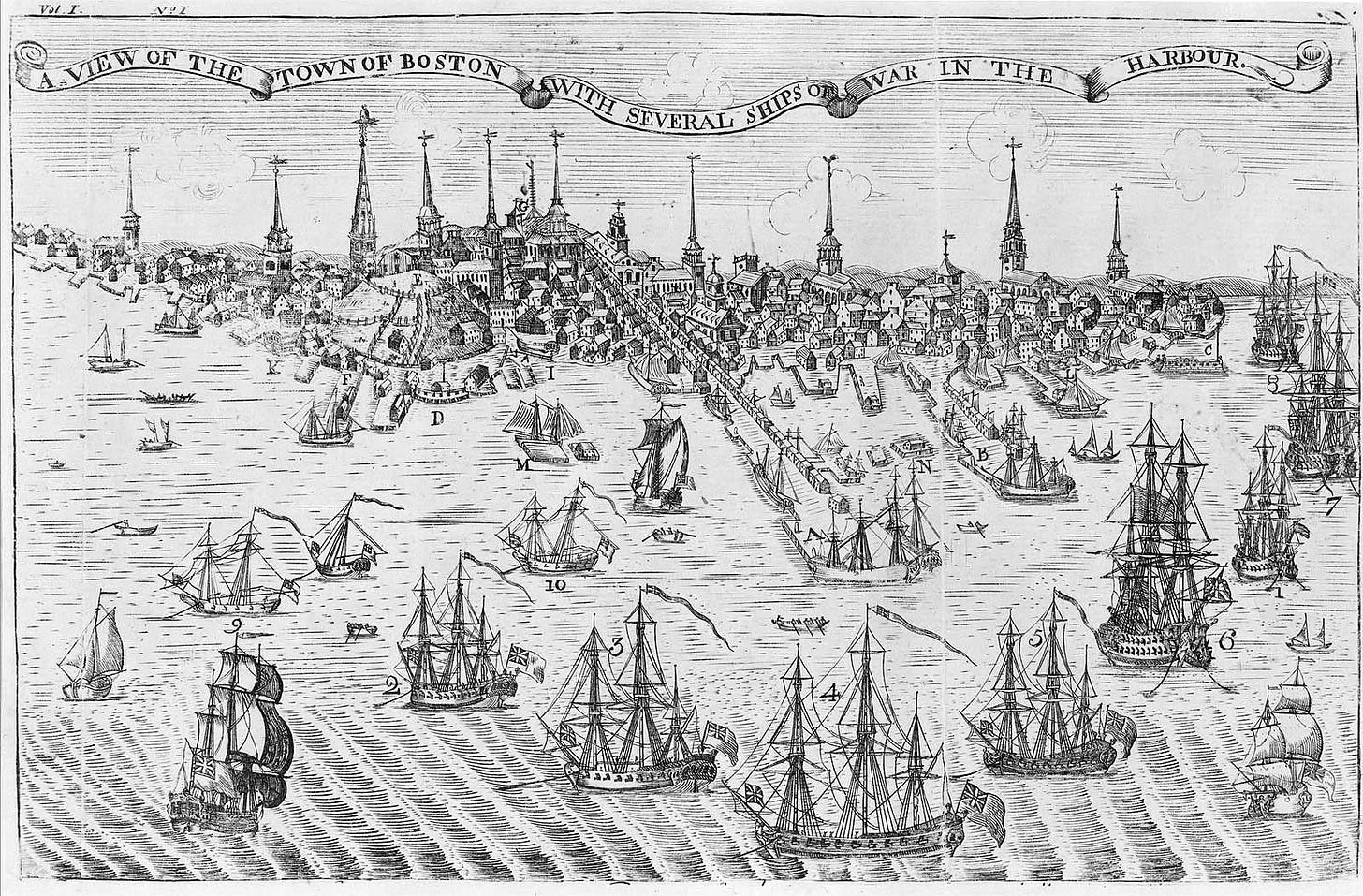Review of Hardesty's "Unfreedom." (2016)
Jared Ross Hardesty, Unfreedom: Slavery and Dependence in Eighteenth-Century Boston (New York: NYU Press, 2016)

Understanding slavery in colonial Boston requires understanding a larger world of dependence that was common across the Atlantic world during the sixteenth and seventeenth centuries. Jared Hardesty, a professor of history at Western Washington University, seeks to guide readers into the world of dependence that was common for all classes of Bostonians in his book Unfreedom (2016). By pulling readers into the streets of Boston, Hardesty pulls back the curtains of a world that most modern readers can scarcely comprehend. Hardesty argues that by understanding the role of dependence and Britons embrace of the concept of hierarchies, suddenly the world of Black Americans in Boston becomes more complicated and much richer.
Hardesty tackles a challenge with current scholarly frameworks of slavery in which the concept of freedom is juxtaposed directly with that of slavery. However, for peoples of the early modern world, freedom did not mean lack of dependence. In fact, in most cultures of the Atlantic world, hierarchies dominated. Slavery was essential to Atlantic world economies both in European colonies and in Africa, but as Hardesty insightfully points out, in in eighteenth century Boston “Race mattered…but class and status mattered more.” His narrative clearly shows this as he illustrates how the lower sorts had much in common, despite racial differences.
The concept of hierarchies would not have been new to newly arrived Black Bostonians. Whether coming from other colonies, or from Africa, traditions of slavery and dependence mingled with growing ideas of race and class. Hardesty does a fine job of capturing the complicated nature of West African slavery and the role of dependence there. Importantly, he notes how these experiences with a system that was likewise violent, could impact newcomers to Boston. This is particularly important as he reminds readers that origins matter and that all bring cultural baggage with them in the Atlantic world. With that cultural baggage came an understanding that one could protest within a system of slavery in order to achieve greater autonomy or rights without breaking the system itself.
As Hardesty takes his readers in the world of Boston in the 18th century, he combines numerous scholars work to show the role of hierarchy and monarchial culture that was transforming the New England colonies. Once Puritan strongholds, they had increasingly become Anglicized (i.e. more British) following the Glorious Revolution. Hardesty does not try to glorify or heroize those who were enslaved. In fact, he notes that enslaved Africans were also human and could hurt others. For example, he states that those involved in theft, "were not Robin Hoods stealing from the rich to give to the poor, because enslaved thieves often targeted marginalized people.” (Ch. 2) He also captures how white Bostonians also flouted the laws and continued to import enslaved labor, despite colonial resistance. In all areas, he humanizes those who enter his narrative.
Throughout his chapters that discuss family relationships, white and Black Bostonians relationships, and economics of Boston, the role of labor in enabling Black Bostonians to carve out autonomy is one of the central ideas. It was through labor that a Black Bostonians worked alongside and developed connected relationships with their fellow laborers of different races. In the tight labor market of Boston, enslaved people could push for better wages or treatment, thereby creating greater spaces of freedom.
Black Bostonians also seized and modified European customs to create their own spaces of freedom. Whether Enlightenment philosophy or in religion, Black Bostonians connected themselves to the growing concepts of freedom in the Atlantic world. This actually, is one area that I felt was misargued. In Hardesty’s view religion and ideology are merely avenues of protest, rather than being sincerely held beliefs. Hardesty states at one point that sincerity of belief does not matter for it all was protest. I could not disagree more. This type of argument strips religion of its emotion and vibrancy and turns it into a social club or society. While religion has elements of this, it is far more than just that. Distinguishing between sincerity of belief helps to nuance how people engaged with the world around them. For example, those wanting to read the Bible may not have done so out of resistance or to find resistance language, but instead to access the teachings they heard that stirred their souls. Was joining a church an act of forcing masters to acknowledge an enslaved persons humanity or was it an act of seeking God for personal reasons? Ultimately, Hardesty fails to engage even modestly with this complexity of belief and action.
Overall, this was an excellent book that integrates the work of political, social, and cultural historians into a well argued (for the most part) and insightful book that creates a world that Black Bostonians from the period would have more easily recognized. Unfreedom suggests that their are better, more accurate ways to understand the slavery of the past and importantly, this new narrative forces us to think more closely about the radicalness of the Age of Revolutions and the transformations that enveloped first the Atlantic World and then the world.
Robert Swanson



